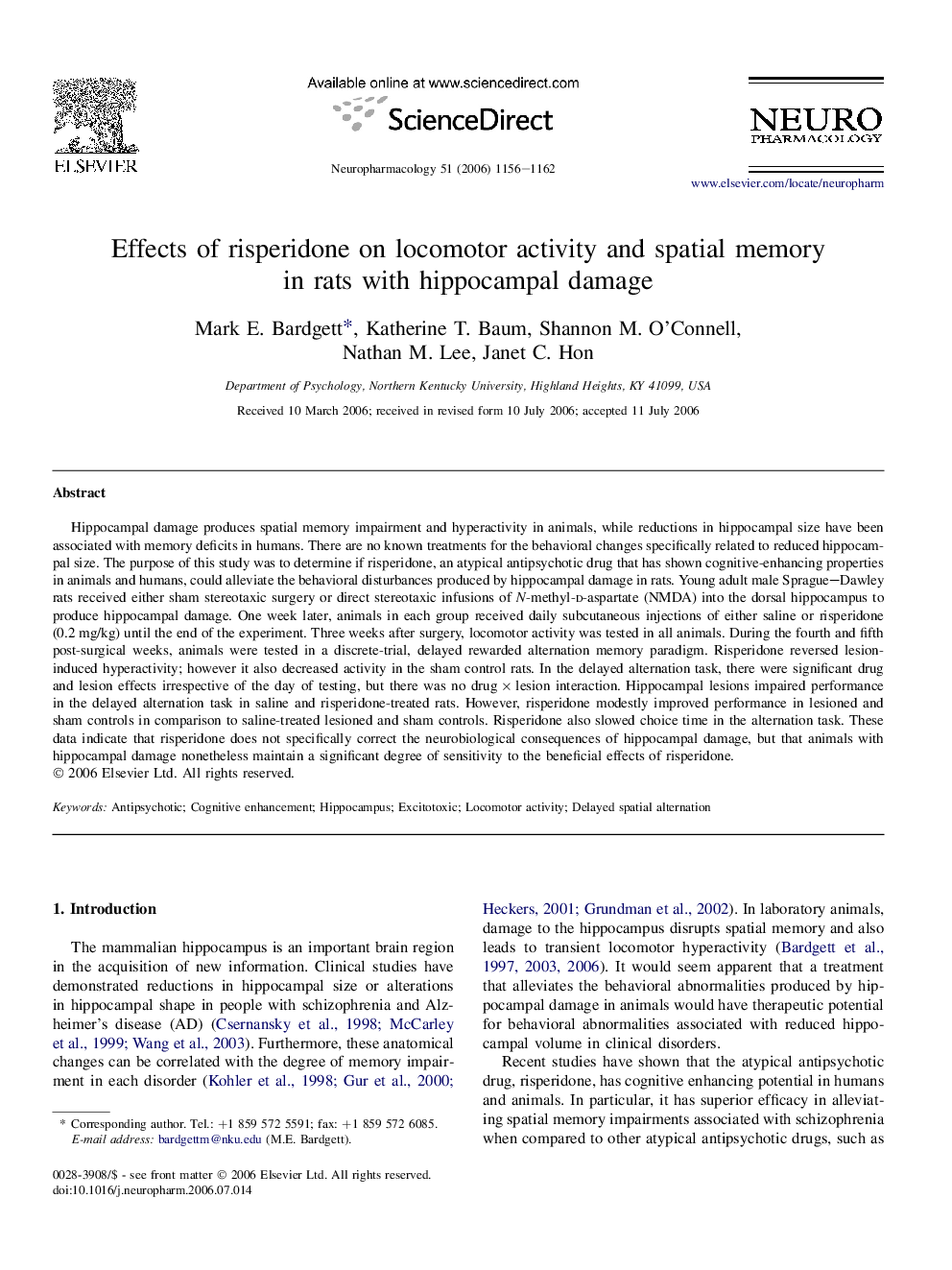| Article ID | Journal | Published Year | Pages | File Type |
|---|---|---|---|---|
| 2494959 | Neuropharmacology | 2006 | 7 Pages |
Hippocampal damage produces spatial memory impairment and hyperactivity in animals, while reductions in hippocampal size have been associated with memory deficits in humans. There are no known treatments for the behavioral changes specifically related to reduced hippocampal size. The purpose of this study was to determine if risperidone, an atypical antipsychotic drug that has shown cognitive-enhancing properties in animals and humans, could alleviate the behavioral disturbances produced by hippocampal damage in rats. Young adult male Sprague–Dawley rats received either sham stereotaxic surgery or direct stereotaxic infusions of N-methyl-d-aspartate (NMDA) into the dorsal hippocampus to produce hippocampal damage. One week later, animals in each group received daily subcutaneous injections of either saline or risperidone (0.2 mg/kg) until the end of the experiment. Three weeks after surgery, locomotor activity was tested in all animals. During the fourth and fifth post-surgical weeks, animals were tested in a discrete-trial, delayed rewarded alternation memory paradigm. Risperidone reversed lesion-induced hyperactivity; however it also decreased activity in the sham control rats. In the delayed alternation task, there were significant drug and lesion effects irrespective of the day of testing, but there was no drug × lesion interaction. Hippocampal lesions impaired performance in the delayed alternation task in saline and risperidone-treated rats. However, risperidone modestly improved performance in lesioned and sham controls in comparison to saline-treated lesioned and sham controls. Risperidone also slowed choice time in the alternation task. These data indicate that risperidone does not specifically correct the neurobiological consequences of hippocampal damage, but that animals with hippocampal damage nonetheless maintain a significant degree of sensitivity to the beneficial effects of risperidone.
